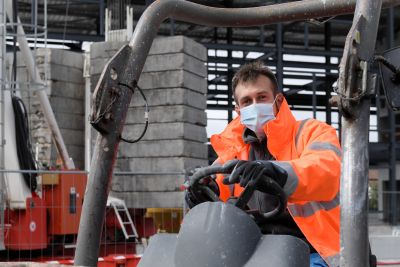Trade unions welcome action by the European Commission today to protect over 1.1 million people from work-related cancer by putting binding exposure limits on three dangerous substances.
The Commission has proposed Binding Occupational Exposure Limit Values (BOELs) on Acrylonitrile, Nickel compounds and Benzene as part of an update to its Carcinogens and Mutagens Directive (CMD).
The new legislation will particularly protect workers in the manufacturing and construction industries. It means new or updated limits have now been placed on 27 carcinogens since 2014.
But no action has been taken to limit exposure levels to 20 more cancer-causing substances, while existing exposure limits for common workplace carcinogens like Crystalline Silica, Diesel emissions and asbestos do not offer sufficient protection and urgently need to be updated. The objective of the ETUC is to have at least 50 priority carcinogens with BOELs under the CMD by 2024.
In addition, some of the obligations from the previous revisions of the directive are still to be fulfilled despite the deadline for doing so having expired. The ETUC therefore urges the European Commission to extend the scope of CMD to substances toxic for reproduction and to hazardous medicinal products.
With up to 12% of all cancers being work-related, the ETUC is also calling for a new coherent and transparent system of setting exposure limits based on that of Germany and the Netherlands.
ETUC Deputy General Secretary Per Hilmersson said:
“No one should be placed at risk of cancer when they go to work. New EU limits on three cancer-causing substances is a step in the right direction, but too little at a time when 100,000 people die of work-related cancer every year.
“It is clearly unacceptable that workers still have no protections from 20 high risk substances, so the Commission must continue updating the legislation to ensure there are exposure limits on all of the most dangerous cancer-causing substances.”
Photo credit: Marcel Crozet / ILO

